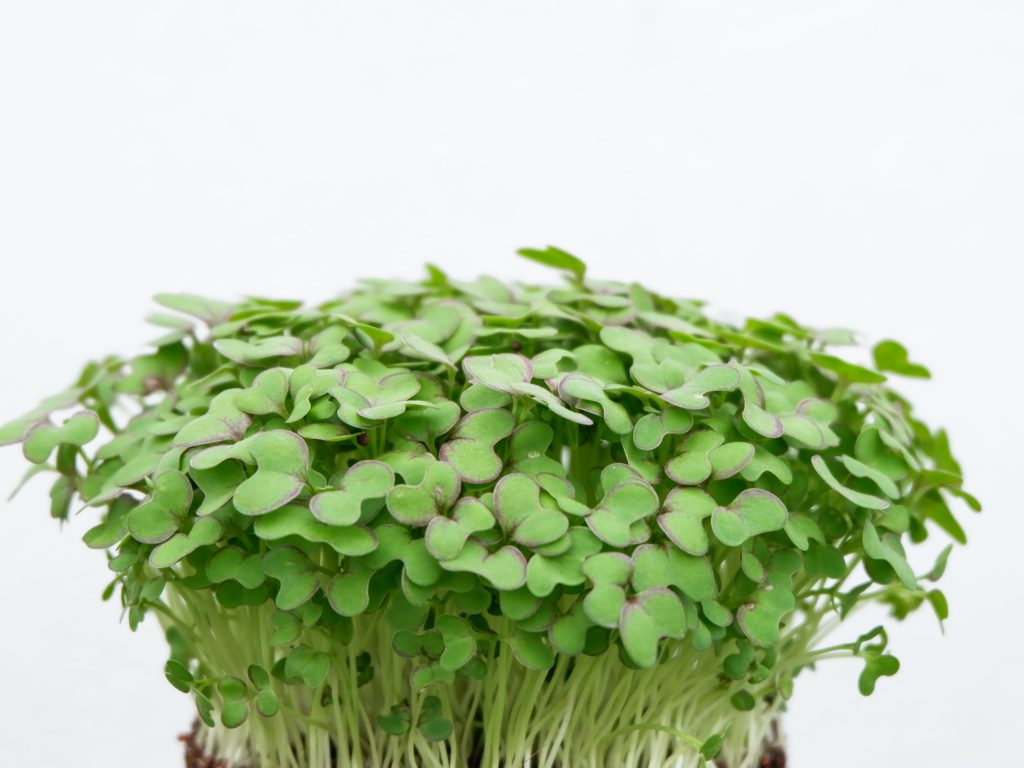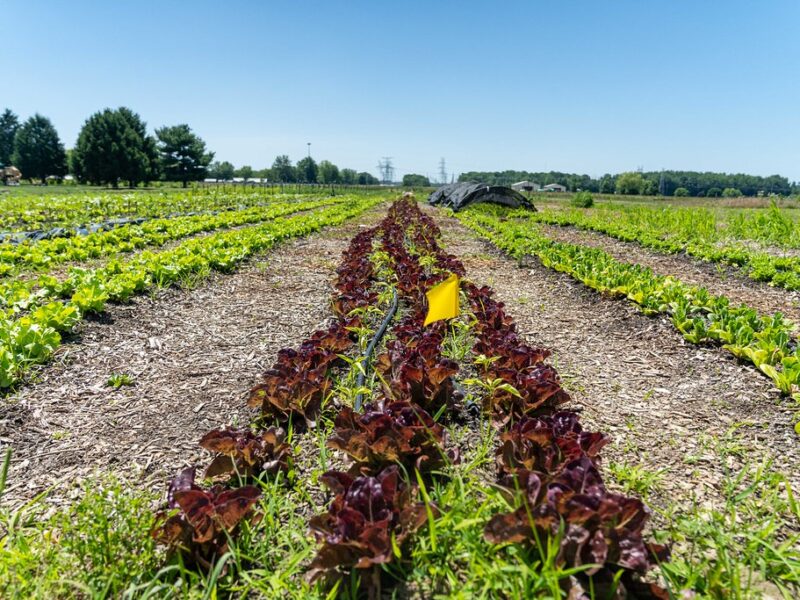Nutrition experts often use the term “eat the rainbow” when they discuss the importance of food variety, specifically produce choices. So when you’re eating the organic rainbow, don’t leave out the greens!
Leafy green vegetables are an important part of a nutritious diet. Fresh organic greens are packed with vitamins, minerals, fiber, antioxidants, and polyphenols, the disease-fighting compounds found in plant foods. A diet rich in leafy greens can offer numerous health benefits, including reduced risk of obesity, heart disease, high blood pressure, and mental decline.
A recent study in Neurology found that “those who ate the leafy greens each day had slower rates of cognitive decline compared to those who ate the least.” In fact, those who ate greens had the memory equivalent of people 11 years younger!
A recently discovered gene reveals the importance of eating your greens, according to another study. Known as T-bet, the gene instructs precursor cells in your intestinal lining to produce innate lymphoid cells, which protect your body against gut infections and inflammation, control food allergies and intolerances, support a healthy immune response, and seal the leaks in your gut. This important gene gets switched on by cruciferous veggies, such as broccoli, microgreens, and Brussels sprouts.
Leafy greens have also been linked to a natural way to relieve stress. They’re an excellent source of folate, which helps your body produce mood-regulating neurotransmitters, such as dopamine and serotonin. Here are other ways you can skip the stress with healthy additions to your daily routine.
Finding organic greens locally during certain times of the year can be a challenge. One solution is to grow your own – and you may be surprised by how easy it can be!
How to grow greens indoors:
- Decide what organic greens to grow. Lettuce, kale, arugula or microgreens are popular choices.
- Buy organic seeds. Look for organic seeds at Johnny’s Seeds, Baker Creek Heirloom Seeds and High Mowing Seeds.
- Pick a container suitable for your organic greens. Depending on what you are growing, most containers can be found at your local garden supply store or ordered online. You can even use egg cartons!
- Get organic potting soil. Look for potting soil labeled organic at your local garden supply store. This is an important part of growing healthy, organic greens.
- Find sunlight or buy “grow lights,” if necessary. Locate a spot in your home that gets sun for most of the day. Follow the directions on the seed package to supplement the natural light with extra light, if your greens need it.
- Give your new plants daily attention. Your plants will need to be fed. Start by using organic fertilizers such as diluted fish emulsion, seaweed extract, or compost tea every couple of weeks, then adjust as necessary. And don’t forget to water!
Your new indoor gardening efforts can lead to a larger outdoor spring garden if space and time permits. Spring is a good opportunity to get your hands in the dirt and grow some delicious organic food. Here are seven more ideas for starting and enjoying your organic garden.
The main reason to avoid conventional foods is to skip the more than 700 chemicals used to produce them. There are hundreds of other reasons to choose certified organic, including our top 15. Studies show a range of positive health effects connected to eating organic.
Here are some highlights of how eating organic is better for your health:
- Eating organic fruits and vegetables could increase your antioxidant intake by 20 to 40 percent.
- Organic strawberries have more nutrients and antioxidants than their conventional counterparts do.
- Organic tomatoes are 50 percent higher in vitamin C than conventional tomatoes.
Here is more information about these organic health studies.
If organics are not yet widely accessible and affordable in your area, growing your own is only one solution. Plus, here are more ways to benefit from organic all year long and still stay within a budget.





